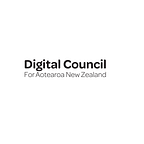Pacific people should be involved in creating algorithms used on their people #Weeknotes 21
Kia ora koutou — we are the Digital Council for Aotearoa New Zealand. We are looking forward to sharing our mahi (work) here with you. In keeping with the #weeknotes approach, we want to be transparent about our work. Plus, we are looking for input from people from all walks of life to inform our advice to the New Zealand Government on harnessing the potential of digital and data to make Aotearoa New Zealand a great place for all.
This week our researchers met with Pacific Youth Leaders at Massey. Eleven participants (with self-defined ethnicities spanning Samoan, Tongan, Niuean, Ni-Vanuatu, Māori, Hungarian, Dutch, Austrian and Italian) shared their views and insights on automated decision-making (ADM).
A key question we asked was, “What are the MOST important things that will increase your comfort with the use of algorithms in decision-making in New Zealand?”
We thought we’d use these #weeknotes to share what we heard, what we’re seeing and what we’re thinking.
What we heard…
- People want algorithms to support rather than replace human roles in decision-making.
- Engagement with cultural communities is challenging for algorithms to perform appropriately.
- Pacific people should be involved in creating algorithms used on their people.
- There should be transparency around what algorithms are doing and what will be done with the data they use and collect.
- That a human-centred approach be the basis for how algorithms are used.
- The necessity of ongoing monitoring to ensure algorithms remain relevant and appropriate for use.
- That humans be given some level of control regarding algorithms that may use their data.
What we’re seeing…
Trust and trustworthiness are key factors in unlocking the potential of digital technologies for social and economic wellbeing.
There are many beneficial uses of ADM, from helping us navigate a new city with an app to increasing the speed and accuracy of diagnosis of certain medical conditions. However, ADM is not without risks. For example, ADM can be used in ways that cause harm and reinforce historical bias and injustice. If not used responsibly, there is potential for ADM to have significant negative impacts for New Zealand, and especially for people who are already disadvantaged or marginalised.
What we’re thinking…
There are already many high-level principles around aspects of ADM, both globally and in an Aotearoa New Zealand context. There is an opportunity to go beyond principles, and consider practical steps and guidance for implementing ADM systems.
The idea of “automation” brings to mind computers doing their own thing with little human intervention, and perhaps even a level of agency. However, there is always some level of human interaction throughout an ADM process. For example, automated systems are designed and built by humans, and processes surrounding ADM are developed, implemented and communicated by humans. To ensure trust in ADM systems, we propose that there must also be trust in the human and organisation elements of a system.
Much of our focus to date has been around ensuring trust from the people who are subject to ADM systems. There is also an opportunity to further investigate the levels of trust needed by people implementing ADM systems. For example, what needs to be in place for senior decision-makers to be comfortable with implementing ADM systems to solve problems or grasp opportunities in their organisation?
ACTIVITY SUMMARY
We’ve started an intense period of focus groups surfacing the experiences, aspirations, hopes and challenges around digital and data driven technology. We have more focus groups planned over the next few weeks with Māori, , Blind and Low Vision NZ, youth care providers, refugee and migrant communities, taxi drivers.
Mitchell Pham presented at the University of Canterbury’s webinar, How will Asia’s digital innovation impact on NZ businesses? last Wednesday. He talked about the barriers and challenges that Aotearoa’s SMEs face in going digital. He says these barriers have to be overcome first if Aotearoa businesses are to access the digital economies of Asia.
We have with the Asia New Zealand Foundation. The Foundation aims to equip New Zealanders with the knowledge, skills and confidence to thrive in Asia. We discussed how New Zealand is a diverse nation and to reduce exclusion we must reach out and engage using different platforms and mediums.
About our work: Council members come together monthly to make key decisions and progress our work programme. Between formal meetings, members focus on various work streams. Colin Gavaghan and Marianne Elliott lead our research work, Kendall Flutey and Roger Dennis our ad-hoc work, and Rachel Kelly and Nikora Ngaropo lead our comms, while our chair, Mitchell Pham, holds responsibility for stakeholder engagement.
